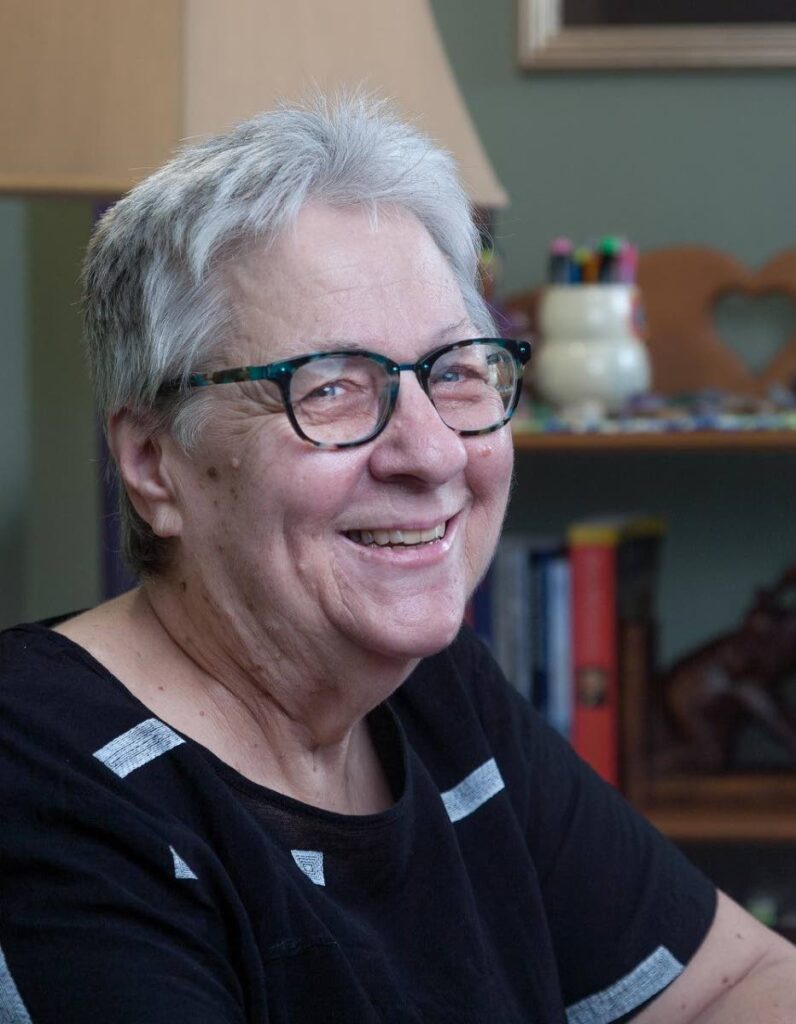Commentary
Debbie Jacob
6 Hrs Ago

Debbie Jacob
Far too few of us know the power of magic in TT. But those who do understand what I am talking about know that every time we buy a book written by a Caribbean writer, our hands hold the power and the magic to counter the injustice of foreign narratives about the Caribbean. Our version of history and our voice in literature make us a force to be reckoned with on the international literary scene.
Just look at all the Caribbean writers who are making waves internationally: Marlon James, Kei Miller, Rabindranath Maharaj, Monique Roffey; the finalists for the 2024 NGC Bocas Lit Fest Prize: Nicole Sealey, Kevin Jared Hosein and this year’s winner Safiya Sinclair. Ira Mathur’s memoir Love the Dark Days now has a publisher in India too.
When we tell our own stories, we capture the essence of being Caribbean and breathe confidence and pride in everyone who reads and learns about the region that has shaped us.
Reading is the foundation of education; the weapon to fight crime and the tonic for happiness.
These are no pie-in-the-sky dreams. I have seen books turn prison inmates’ lives around and witnessed shy children break free from their fears because they read.
As I see our literature featured in the international media, winning prestigious book prizes and starring in the NGC Bocas Lit Fest, I think of Colombian Nobel literature laureate Gabriel García Márquez, master of magical realism, who came to fame when great South American surrealist and magical realist writers like Jorge Luis Borges couldn’t sell 50 books.
All South American writers worked to establish their fame abroad, but Márquez said a writer could not truly be considered great until he conquered the audience at home.
At the beginning of his writing career, Márquez would not allow his books to be translated into English until they had been in the Spanish-speaking market for two years. That decision changed the course of Latin American literature and made the region’s literature popular. Note that Márquez, from the Caribbean coastal town of Aracataca, Colombia, referred to himself in The Fragrance of Guava as a Caribbean writer.
All writers are partly judged on their recognition and acceptance in their own culture. Márquez knew that. In these small islands, it’s important to have international recognition, but we write for recognition of ourselves as a Caribbean people.
On his Facebook page (printed here with permission from Kevin Jared Hosein) the winner of the 2024 NGC Bocas Lit Fest prize for best fiction wrote, “Whenever you purchase books by Caribbean writers, display them on your shelves, exhibit them on the Internet, recommend them to others, discuss them, review them, put them on curricula, attend readings…you hold up part of something colossal. The writers alone cannot lift it (alone). You allow the lion to re-tell stories that had only been allowed to escape the mouths of hunters.”
This acceptance in our own islands shouldn’t be difficult to imagine or hard to achieve. Renowned Japanese surrealist writer Huruki Murakami once casually and confidently said, “Selling books is not difficult. All it takes is ten per cent of a country’s population to make a book a bestseller.”
Imagine a single book in TT selling 150,000 copies, representing ten per cent of our population. If everyone bought at least two books a month, we could support Caribbean writers’ independence so they could make a living from their craft. (Writers live on royalties, which are generally ten per cent of the wholesale price of a book. That means a writer might make $10 for every book sold).
So spread the word. Encourage teachers, friends and family to read Caribbean books. Write about them on social media and send reviews to places like Goodreads, amazon book store and Barnes and Noble. Ask your workplace to buy book vouchers from our bookstores for employee incentives and gifts.
If businesses adopt school libraries and stock them with Caribbean books, sponsor readings with local writers and hold literary events in schools, we can build student readership. The media needs more stories about Caribbean literature and writers – and the arts in general.
Search for Caribbean writers on platforms like audible.com so your family can listen to Caribbean books on those long commutes to and from work and school. Reading helps to create strong family bonds.
Be a hero. Make a difference. Fight ignorance, prejudice, anger, sadness, and the foreign narratives about us. Show Caribbean writers they matter in the most important place: home.
